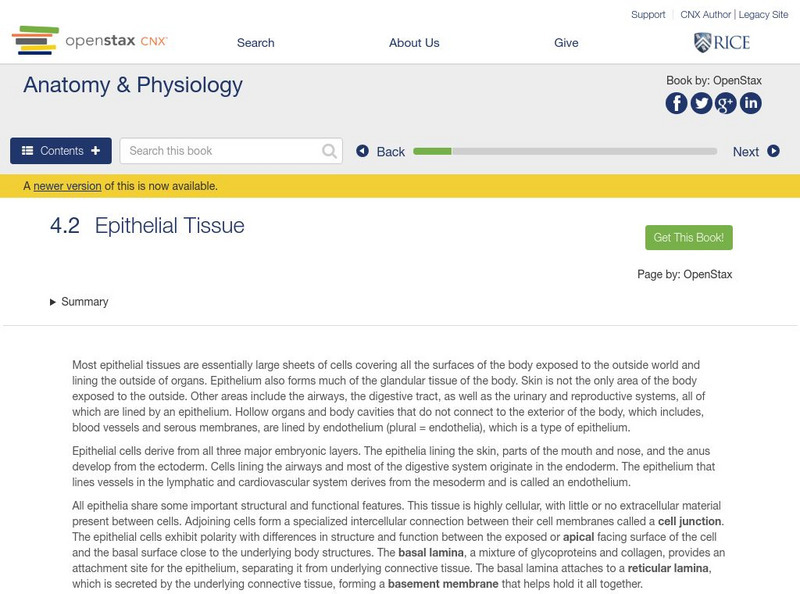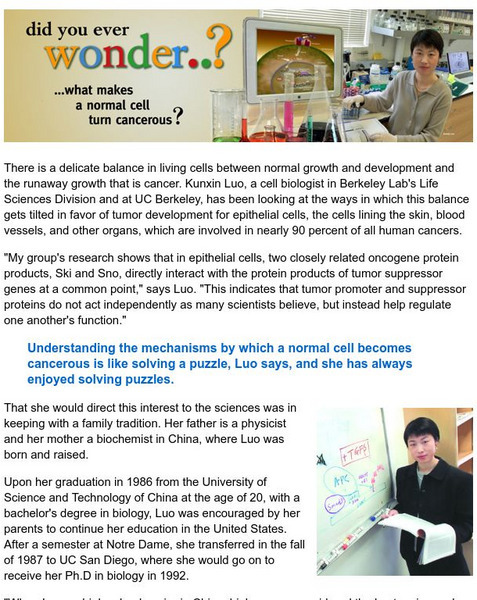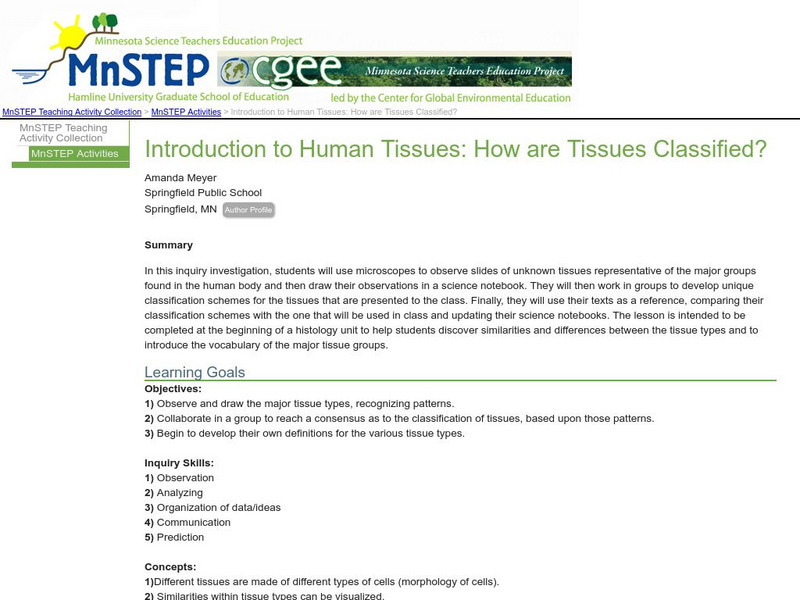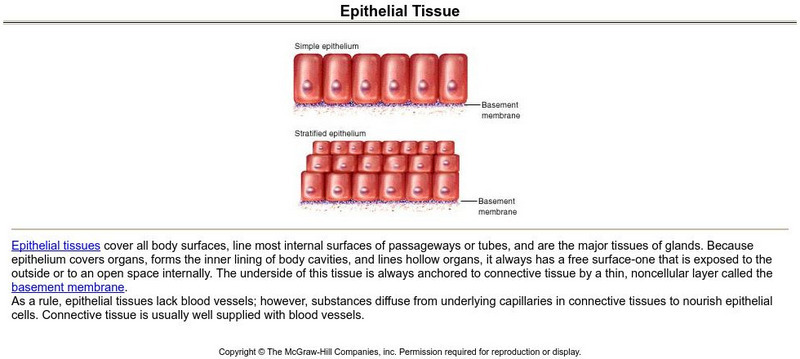Curated OER
Body Tissue
Human anatomy learners will grow more knowledgable about body tissue by viewing this presentation. Injected with a little humor (e.g. using a toilet paper roll graphic in place of the word "tissue"), it is sure to keep them engaged. The...
Curated OER
Tissues
Complete with teachers' notes for most of the slides, this is a tremendous presentation of the four types of tissues: epithelial, connective, nerve, and muscle. Each is displayed with pertinent vocabulary and photos of microscope slides...
Curated OER
The Animal Body and How it Moves
Spark interest in the body structure of vertebrates with this comprehensive and colorful worksheet. Your biology class will explore the levels of organization, primary tissue types, and the main organ systems. Finally, they hone in on...
National Cancer Institute at the National Institutes of Health
Seer Training Modules: Cells, Tissues, and Membranes
Self-guided learning activity where students learn about cell structure and function, different types of tissues, and various kinds of membranes in the body. There is a short quiz at the end of the lesson to check for understanding.
OpenStax
Open Stax: Anatomy & Physiology: Epithelial Tissue
This learning module helps students better understand epithelial tissue - essentially large sheets of cells covering all the surfaces of the body exposed to the outside world and lining the outside of organs.
OpenStax
Open Stax: Anatomy and Physiology: Types of Tissues
The term tissue is used to describe a group of cells found together in the body. Although there are many types of cells in the human body, they are organized into four broad categories of tissues: epithelial, connective, muscle, and...
Lawrence Berkeley National Laboratory
Berkeley Lab: Did You Ever Wonder? What Makes a Normal Cell Turn Cancerous?
Students investigate what makes a normal cell turn cancerous. The article discusses the work of cell biologist Kunxin Luo. The resource consists of pictures, quotes, and links to additional resources.
University of Kansas Medical Center
University of Kansas Medical Center: Epithelia
Investigate microscopic specimens of various epithelial tissue and cells.
Science Education Resource Center at Carleton College
Serc: Introduction to Human Tissues: How Are Tissues Classified?
In this investigation, young scholars will observe slides of unknown tissues and then draw their observations in a science notebook. They will then work in groups to reach a consensus as to the classification of tissues. This lesson is...
University of Nebraska Omaha
University of Nebraska: Cheek Cells
This site from the University of Nebraska provides information on the stratified squamous epithelial tissue, which comes from the tissue on the inner surface of the cheek.
BiologyWise
Biology Wise: Endothelial Cells and Epithelial Cells
Discusses the differences between endothelial and epithelial cells, including where they are found in the human body, their function, and their structure.
McGraw Hill
Mc Graw Hill: Epithelial Tissue
The structure and function of epithelial tissues and basements membranes are explained in this concise site.
Estrella Mountain Community College
Estrella Community College: Animal Cells and Tissues
Notes on different tissues of the body such as: connective, epithelial, muscle, and nervous. Helpful terms and definitions as well as review questions. Colorful graphics of important terms are also provided.











